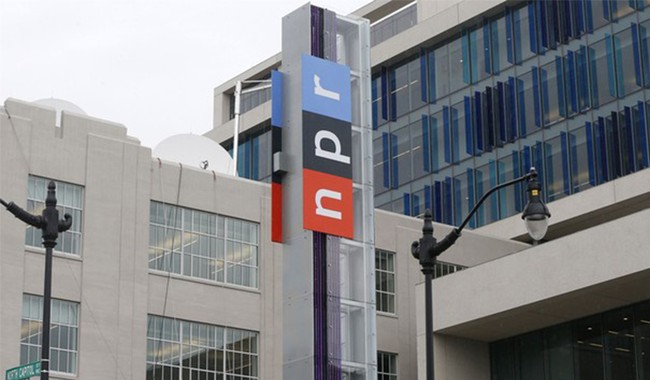
Before politics overwhelmed the world, the primary meaning of “liberal” was “generous.”
President Donald Trump and the Republican Congress have given political liberals a chance to take that meaning back — by opening their wallets to show just how much they value NPR, PBS, and other programs defunded by the GOP.
There’s no shortage of cash on the left:
Laurene Powell Jobs, the mega-rich backer of The Atlantic, has a net worth that was estimated above $11 billion a year ago and is thought to be even higher today.
George Soros, at 94, has a fortune in the vicinity of $7 billion, with billions more in his Open Society Foundations.
Bill Gates has about $115 billion, and his ex-wife, Melinda, around $30 billion.
Any one of these left-leaning billionaires could single-handedly make up the $535 million that NPR, PBS, and local stations were getting annually from taxpayers before Congress zeroed out their subsidies.
And if half a billion a year is too much for one zillionaire, a half-dozen of them (or more) could share the burden without feeling a pinch.
But are wealthy liberals willing to put their money where their mouths are?
Citing Michal Heiplik, president of the public-media analytics organization Contributor Development Partnership, The New York Times reports PBS and NPR have already reaped a windfall from smaller-dollar donors in recent months, with 120,000 new supporters stepping up to give some $20 million, and overall donations are running $70 million above last year.
What works for PBS and NPR can work for humanitarian programs formerly funded as part of USAID as well, though the cuts to be made up there are bigger: Congress has eliminated about $8 billion in funding for USAID and other foreign-aid efforts, according to the Cato Institute.
That’s a lot of money — but not a dime of it has disappeared.
After all, where does government’s money come from in the first place?
Washington can only give to public broadcasting or foreign aid what it takes, or borrows, from the American people in the first place.
When government doesn’t spend money, society doesn’t lose any of its resources; the money just stays with the taxpayers, and the government middleman doesn’t get his cut.
That, for liberals, is a big part of the problem:
The Democratic Party depends on shunting everyone’s tax (or debt) dollars into the hands of bureaucrats who are one of the party’s most loyal constituencies.
It’s not just NPR and PBS that have been publicly financed — it’s also liberalism as a movement.
Bureaucrats in government and in government-supported nonprofits and other less-than-fully-private parts of the “private sector” may work for organizations that are officially nonpartisan, but their campaign giving heavily favors Democrats.
Their employers may be nonpartisan in theory, but the employees have a strong partisan tilt, and personnel is policy: Any organization is only a collection of people.
USAID and the Corporation for Public Broadcasting were both born in the Kennedy-Johnson years, at mid-century liberalism’s zenith.
Liberalism had been dominant for so long, starting with the New Deal and Franklin Roosevelt’s administration, that liberal intellectuals and policymakers came to think of themselves as more than just one side of politics — they claimed to speak for everyone, as if a single party could define what it meant to be nonpartisan.
But even at that hour, the conservative movement was taking off, while Democrats were being dragged to the left by young radicals who wanted “acid, amnesty, and abortion.”
The agencies and programs the Republican Congress has defunded were never as neutral as they claimed to be.
And as liberals, under the influence of the left, adopted a more adversarial attitude toward America’s past and present, it became ever more obvious that the agencies and public-private partnerships they ran represented only one side of any argument.
But this doesn’t mean liberals can’t continue to fund everything they funded before — now they just have to do it with their own money.
Some centrist liberals rightly see that as an opportunity, not an imposition:
When I told a friend at a government-supported think tank I was sorry for the professional upheaval he was going through, he noted that his institution had in fact been coasting by ever since the end of the Cold War — it needed a renewed sense of mission, and having to raise private funds would give it the impetus it had been lacking.
Republicans aren’t worried NPR or PBS will move further left if they court progressive billionaires, considering what a marginal presence conservatives have on those networks already.
If they’re smart, however, these broadcasters will see the loss of government funding as a prompt to court a wider spectrum of support — and to become truly nonpartisan.
Editor’s Note: Do you enjoy PJ Media’s conservative reporting that takes on the radical left and woke media? Support our work so that we can continue to bring you the truth.
Join PJ Media VIP and use the promo code FIGHT to get 60% off your VIP membership!








